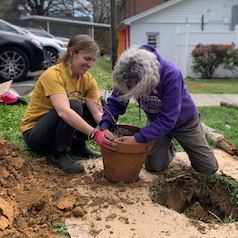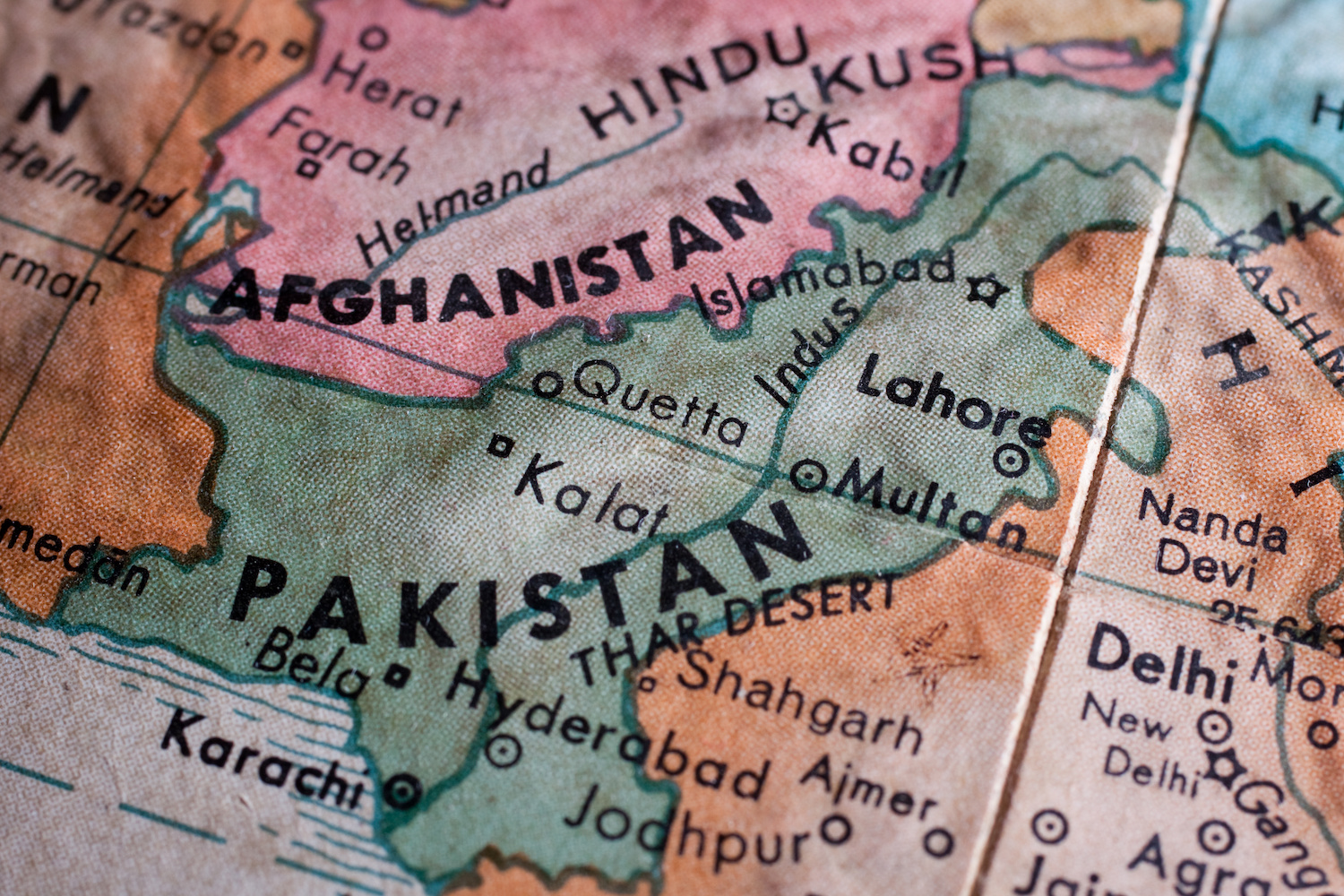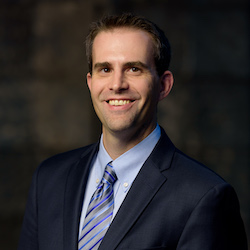Legacies of Dissident Care
Legacies of Dissident Care
Today’s guest writer is Salwa Tareen, our 2024 Doctoral Dissertation recipient. Her works examines how city residents utilize charitable giving to address the challenges of their urban environment.
by Salwa Tareen
In his narrated autobiography, Abdul Sattar Edhi (1928-2016) recounts a surprising path to humanitarianism. Today, Edhi is known as the late founder of The Edhi Foundation, one of Pakistan’s largest non-profit organizations and the world’s largest voluntary ambulance service. Yet, decades before he rose to global fame for his generosity and self-sacrifice, Edhi struggled to reconcile the derelict conditions of his urban surroundings with the apathy of his neighbors. Reflecting on his early adulthood in 1950s Karachi, he sourly complains: “People hastened their own decay, avoided observing their surroundings and became oblivious to the filth that bred around them. Municipal problems lay utterly neglected, as an absolute lack of the dignity of labor was abundant.”¹
To that end, Edhi sets about cleaning a pile of garbage in the middle of a road intersection. He describes an arduous and solitary process of not only shoveling the putrid mound, but also transporting the waste to a neglected city dump. After the garbage heap, Edhi washed streets, cleared gutters, and unclogged toilets. Yet, his mission went unnoticed. “I stood proudly in the street with my hands behind my back,” he recalls, “waiting for signs of acknowledgement in the eyes of the people, watching them as they walked past me. I found them as oblivious to the absence of rot as they had been to its presence.”² Despite his disillusionment, the experience cemented Edhi’s focus to better the material conditions of everyday life.
Edhi’s legacy looms large over my own work as a graduate student studying charitable giving in Karachi. For years, I tried to develop my own research interests outside his shadow lest it cast my project as redundant: another hagiographic portrayal of the “richest poor man” in what is often touted as one of the most charitable countries in the world. It was only until I recently read his autobiography that I was able to draw deeper conceptual connections from my own interlocutors to the storied humanitarian.
My own ethnographic research explores how charitable organizations address Karachi’s ongoing infrastructural disasters. Decades since Edhi shoveled the city streets, residents continue to suffer from a lack of reliable water, waste management, electricity, and public transportation. Although recent studies attribute Karachi’s climate of “ordered disorder” to waves of armed violence, an overall decrease in such incidents has not dampened residents’ discontent.
Faced with an inefficient and incapacitated local government, residents often resort to nonprofit organizations to meet their daily needs. Yet, rather than providing a compassionate cover for government inefficiency, organization leaders utilize religious charity as a platform for both protest and dissent against the state. The resultant “dissident care” serves as a means for Karachiites to attend to their own needs and advocate for their city.
A framework of dissident care allows for the recognition that giving does not come at the expense of critique. With a singular focus on bettering material conditions, Edhi, too, often expressed resentment towards the corruption, apathy, and injustice he observes in others, be they colleagues, beneficiaries, or the country’s rulers. Edhi’s common adage that “Humanity is my religion,” therefore speaks less to a compassionate affect towards all people, than a dogged commitment to humanitarianism as a consciousness-raising activity. As he states, “In yourself is evidence, on the way is knowledge, in the streets are issues and solutions. Walk in the streets, live on them and aim to rise with them.”³ This singular focus challenges the common perception of Edhi as a pious, humble and apolitical mendicant.
This perspective extends beyond Edhi’s successors in Karachi. As opposed to viewing charitable giving and humanitarianism as apolitical, critical studies of care reveal a variety of moral outlooks. Frequent reductions of philanthropy to political neutrality or acquiescence, therefore, overlook the weight of the present world on one’s choice to give and need to receive. This is arguably true across faith traditions. Misconceptions about the nature of religious giving often lead to critiques and calls for “Solidarity, not Charity” in mutual aid circles. Amidst unequal power arrangements, such a stance presumes all faith-based giving necessarily wounds the recipient, to paraphrase anthropologist Mary Douglas.
Yet in the absence of formal channels, charitable giving can serve as a mediating platform through which obligations are adopted and circulated. Put simply, material investments make for moral statements; a fact repeatedly and painfully demonstrated by boycott, divestment, and sanction campaigns most recently in support of Palestine. Though the contexts diverge in important ways, both my Pakistani interlocutors and contemporary campaigners seek to disrupt the political and ethical commitments of the status quo. Edhi championed such solidarities through his life’s work. To flatten his legacy into a story of individual achievement would diminish the transformative potential of his care.
¹Abdul Sattar Edhi, Abdul Sattar Edhi: A Mirror to the Blind, An Autobiography. Edited and translated by Tehmina Durrani. (Karachi: A. Sattar Edhi Foundation, 2006), 65.
² Edhi, 66.
³Edhi, 69.
 Salwa Tareen is a Ph.D. candidate in Anthropology at Boston University. She holds a B.A. from Kalamazoo College and an M.T.S. from Harvard Divinity School. Salwa’s research broadly explores the interplay between religion, ethics, and the politics of care in Muslim South Asia. Her dissertation, “Of the City and the Soul: Urban Disaster and an Islamic Ethics of Care in Karachi,” examines how city residents utilize charitable giving to address the challenges of their urban environment. In addition to her academic work, Salwa is an arts organizer, poet, and essayist.
Salwa Tareen is a Ph.D. candidate in Anthropology at Boston University. She holds a B.A. from Kalamazoo College and an M.T.S. from Harvard Divinity School. Salwa’s research broadly explores the interplay between religion, ethics, and the politics of care in Muslim South Asia. Her dissertation, “Of the City and the Soul: Urban Disaster and an Islamic Ethics of Care in Karachi,” examines how city residents utilize charitable giving to address the challenges of their urban environment. In addition to her academic work, Salwa is an arts organizer, poet, and essayist.
Expanded Perspective: Why We Need to Broaden our Philanthropic Imaginations
As Lake doctoral dissertation fellow, Salwa Tareen, makes clear, giving does not come at the expense of critique. I believe such a statement illustrates essential aspects of the work of entities like Lake Institute and the Lilly Family School of Philanthropy. I would argue that we study philanthropy not only for its instrumental values (following the money, so to speak) but also for the ideals – the ways in which our giving shapes our larger imaginations, for instance about the nature of our life together and how communities translate those visions to the larger world.
Our philanthropic institutions and activities can serve as intermediaries where these ideas are worked out. Yet to go further, it might help us to understand philanthropy not as a set of static institutions defining a distinct sector but rather as a complex social institution – defining it even more broadly as a set of traditions that are dynamic, debated, and contested. Whether operating distinctly within a faith community or not, it’s certainly true that multiple religious traditions have and continue to shape our cultures of giving.
As sociologist Craig Calhoun argues, just like philanthropy, “the public good is not objectively or externally ascertainable. It is a social and cultural project of the public sphere…. It is created in and through the public process, it does not exist in advance of it.” So to be clear, the public good is not something that is to be “found,” but rather it is something that is to be “forged” through our lives together.¹ Bringing our traditions to bear in working out how we care for one another and making sense of the public good is essentially what we collectively strive for and a clear strength for what faith communities bring to these contexts.
Of course there is not a single definition philanthropy, but practically and definitionally, the concept encompasses a broad stable of terms: philanthropy as well as charity, voluntarism, civil society, etc. It is through instilling a particular meaning into this nebulous set of concepts that Americans have sometimes sought to champion a particular charitable landscape. Tareen notes other ways in which philanthropy and humanitarianism have shaped communities in Pakistan. Attending to these particular cultures of giving and receiving are vital to understand our world past and present. While the international relief and development sector in many ways follows general impulses toward overarching globalization, there are distinct moral, ethical, and religious traditions that are vital to recognize. A new text such as Religion and Poverty: Monotheistic Responses Around the Globe is just one example of a resource that attends to an in-depth look at least several major religious traditions on this essential topic.
In conclusion, it is worth reiterating that yes, generosity attends to what we do – our actions – but it also must attend to the why, the values that shape our actions and the ideals that we seek to embody and practice. Perhaps this is where our particular contributions within faith traditions lie. We understand generosity as the moral imagination that helps us to see the ways in which our work pursuing the public good can transform us and our communities. In so doing, we embrace the hope that together we are able to do far more than we could ever ask or imagine.
¹Craig Calhoun, “The Public Good as a Social and Cultural Project” in Walter W. Powell and Elisabeth Clemens. Private Action and the Public Good (New Haven, CT: Yale University Press, 1998), 26, 32.
From the Story Shelf: Sharing the Lawn
 A community group in North Carolina asked to use a church’s lawn for a small community garden. The church agrees to share their lawn, free of cost, and new neighborhood relationships are formed. Rev. Casey, the church pastor, is grateful for the ways the garden has strengthened relationships between the church and neighbors. “When you have your hands in the ground, walls come down and conversations happen,” she says.
A community group in North Carolina asked to use a church’s lawn for a small community garden. The church agrees to share their lawn, free of cost, and new neighborhood relationships are formed. Rev. Casey, the church pastor, is grateful for the ways the garden has strengthened relationships between the church and neighbors. “When you have your hands in the ground, walls come down and conversations happen,” she says.
Fundraising Together: The Power of Collaboration
In this episode of the First Day Podcast, host Bill Stanczykiewicz, Ed.D. is joined by Diane Kaplan, Senior Fellow at Indiana University Lilly Family School of Philanthropy. In a revealing discussion on the nuances of nonprofit collaboration, Kaplan shares her insights from her extensive experience with the Rasmuson Foundation. She illustrates the power of strategic partnerships in leveraging the Foundation’s impact far beyond its initial financial capabilities. The Foundation under Kaplan’s leadership, utilized collaboration as a key mechanism to expand its influence and effectiveness in serving the community.
Subscribe
Insights is a bi-weekly e-newsletter for the religious community and fundraisers of faith-based organizations that provides:
- Reflections on important developments in the field of faith and giving
- Recommended books, studies and articles
- Upcoming Lake Institute events



